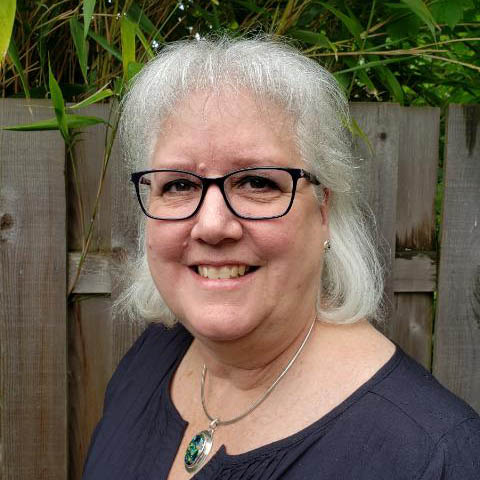My story begins in June 2014. Within days after my daughter’s graduation from nursing school and my husband’s discharge from the hospital, I became very ill with C. Diff (clostridium difficile) colitis. Lab results indicated the presence of Chronic Lymphocytic Leukemia, a diagnosis bringing total shock, disbelief and anxiety. I spent a few weeks in recovery mode from the C. Diff, lining up appointments with my primary care physician and hematology oncologist.
I was fortunate to have a wonderful primary doctor and attained a likewise wonderful oncologist who was informative and supportive.
My profession as an operating room nurse (38+ years) certainly did not help my thoughts as to how and why I developed CLL. I wanted to know WHY and HOW I got this! After several weeks, I returned to work in the operating room at a large metropolitan hospital. I was approached by two other coworkers (one OR tech and another RN) who confided in me that they too had CLL. Another retired coworker contacted me and told me of her CLL diagnosis as well. All four of us are female, in the age range of 50 to late 60’s, with history of long careers working in the operating room. This is certainly thought provoking. Why these women, this career/work environment? Is there something in our work environment that is detrimental? We all certainly were exposed to Bovie smoke plume, laser smoke plume, blood-borne pathogens, X-rays/fluoroscopy, chemical disinfectants, anesthesia gases, diseases etc., in our careers. Have there been insufficient protective devices/policies in our long careers to have triggered CLL?
I continue to be monitored by my oncologist. So far, no chemo/infusion treatment yet, but I always have this lurking feeling as I watch my white count climb and other values decline. As a nurse, I want to know why this happened. What risks are out there for operating room nurses that should be studied, addressed. Why are the four of us in this common cluster?
While attending with my operating room tech friend during her infusion/treatment one day, we both found out from the infusion nurse that the nurse’s husband also has CLL. He had had a career in the OR as an environmental services staff, cleaning operating rooms. Common factor: working in the OR.
May my story prompt questions, conversation, research into possible reasons why this cluster of health-care workers has this common leukemia. May questions be asked to strive for protections, awareness for future generations of nurses, techs, surgeons, anesthesiologists, and support staff.
I retired from the operating room in September of 2015. I have loved my long career. I’ve worked with wonderful staff, built lasting friendships, lived through challenges, worked long hours taking care of patients behind those closed doors hidden from the world. But at what cost?
Pamela Zeiler graduated with a Bachelor of Science Degree in Nursing from University of Oregon Health Sciences University (now Oregon Health Sciences University, Portland, Oregon) in 1977. She has worked for 38 years as a RN in the Operating Room, retiring in 2015.
Originally published in The CLL Tribune Q3 2019.


















